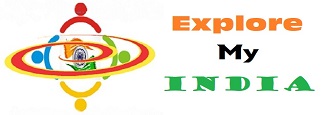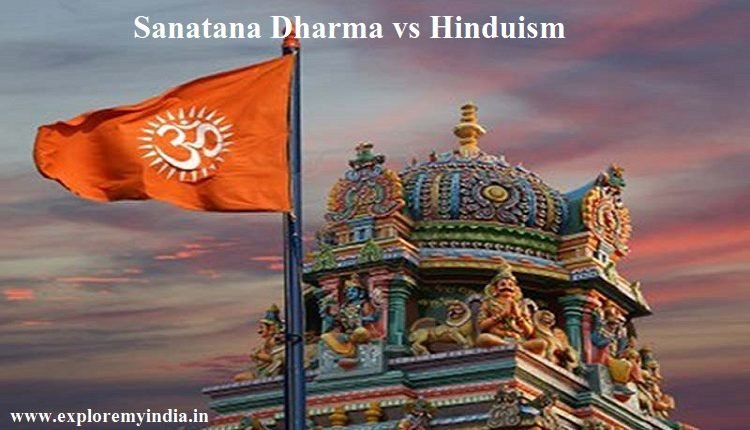Let us Find Out the Basics- What is Sanatana Dharma?
What is Sanatana Dharma? In Hinduism the term, Sanatana means eternal, never beginning nor ending. Dharma is from Dhri, meaning to hold together, to sustain. So the meaning of Sanatana Dharma is to eternally hold All together.
Hinduism, on the other hand, is the modern term for the ancient Sanatana Dharma. What is Sanatana Dharma? Both the terms in Sanatana Dharma vs Hinduism have been ex-changeably used in India to represent one another. Sanatana is ancient and Hinduism is the refined concept.
Nature of Sanatana Dharma
By its nature, Sanatana Dharma is Experience based rather than belief based. There are ideological divisions and distortions in historical date of founding. However, the importance of Sanatana Dharma and Hinduism is never challenged.
The question that What is Sanatana Dharma? finds its resonance globally for its process of growth, which has come slowly and steadily. Sanatana Dharma is Inherent in and inclusive of all. Applicable to all people of all places and times. In the world, while above the world. God-centered rather than prophet-centered. Devoid of sectarianism or denominationalism. Both immanent and transcendent. The whole and the parts. Loving of all and excluding of none.
In response to finding the answer for What is Sanatana Dharma, we may usher up to the following.
Sanatana Dharma is applicable to all people of all places and times in the world. It is God-centered rather than prophet-centered. It is Devoid of sectarianism or denominationalism. It is Both immanent and transcendent. It emanates for The whole and the parts. It is Loving of all and excluding of none.
The universal flow of Dharma, regardless of what name you call it, whether Dharma or some other name, has eternally existed. It has been before any of the great teachers were born. It is not better than, or alternative to, but is inclusive of all. Dharma is that out of which our earth and humanity itself emerged. Dharma not only is, but always was, and always will be. To live in alignment with, and to know the true nature of that Sanatana Dharma is one of the ways of describing the higher goal of life.
It has been before any of the great teachers were born. It is not better than, or alternative to, but is inclusive of all. Dharma is that out of which our earth and humanity itself emerged. Dharma not only is, but always was, and always will be. To live in alignment with, and to know the true nature of that Sanatana Dharma is one of the ways of describing the higher goal of life.
Dharma is that out of which our earth and humanity itself emerged. Dharma not only is, but always was, and always will be. To live in alignment with, and to know the true nature of that Sanatana Dharma is one of the ways of describing the higher goal of life.
Hinduism is, on the other hand, a practice followed by the people who inhabited the banks of river Sindhu and were called Hindus by different people of that era.
Recommended for You:
Spiritual Enlightenment In Hinduism: How To Experience It?
Seven Holy Places Of Hinduism That Will Actually Make Your Life Better
What is Sanatana Dharma? : An Analysis of Sanatana Dharma vs Hinduism
Swami Rama says: The word “religion” and “dharma” denote two entirely different concepts and perspectives.
Religion is comprised of rituals, customs, and dogmas surviving on the basis of fear and blind faith.
On the other hand, Dharma–a word, unfortunately, with no English equivalent–encapsulates those great laws and disciplines that uphold, sustain, and ultimately lead humanity to the sublime heights of worldly and spiritual glory.
Established in the name of God, a religion is an institution that requires a growing number of adherents for its expansion and future existence.
A religion discriminates against human beings who do not belong to its particular order and condemns their way of living and being, whereas Dharma is eternal, looking for no followers for its propagation.
With no discrimination whatsoever, Dharma leads a human being beyond the realms of man-made, institutionalized dictums.
Instead of creating fear of God, Sanatana Dharma makes God manifest in the human heart, not in an anthropomorphic form, but as the absolute and universal One in whom all diversities reside in perfect harmony.
Sanatana Dharma vs Hinduism is best explained by Mr. Stefan Pecho who says that Sanatana Dharma is different from popular Hinduism in two key issues:
- Sanatana Dharma was not a superstitious and superficial religion. Hinduism is heavily superstitious.
- In Sanatana Dharma context the practical spirituality was a natural part of the life of people and society. The non-spiritual people were the departure from the rule. In our age, the departure from the rule is the true practical spirituality of individuals.
While discussing What is Sanatana Dharma, many point out that Sanatana Dharma is a way of life but Hinduism is a religion.
Reference: A concise introduction to the Eternal Path to Liberation, By Pandit Ram Sivan (Srirama Ramanuja Achari)




Dharma is understanding the happenings in the nature and experience it at our own level of awareness then questioning the reason and cause of happening without prejudise mind.So Dharma is the process of understanding the very true nature of this universe including all living and non-living creatures with no division of mind and perceptions on the basis of Dogmas ,rituals. Indus civilisation is a way of life and you can not call it Hindu religion rather it is Sindh culture totally different from Vedic culture. Todays Hinduism is representation of Vedic culture with social hirerchy and order on the basis of manu-smruti so many leatneded class hesitate to accept it but no hesitance for Sanatan Dharma.
I fully agree with you.